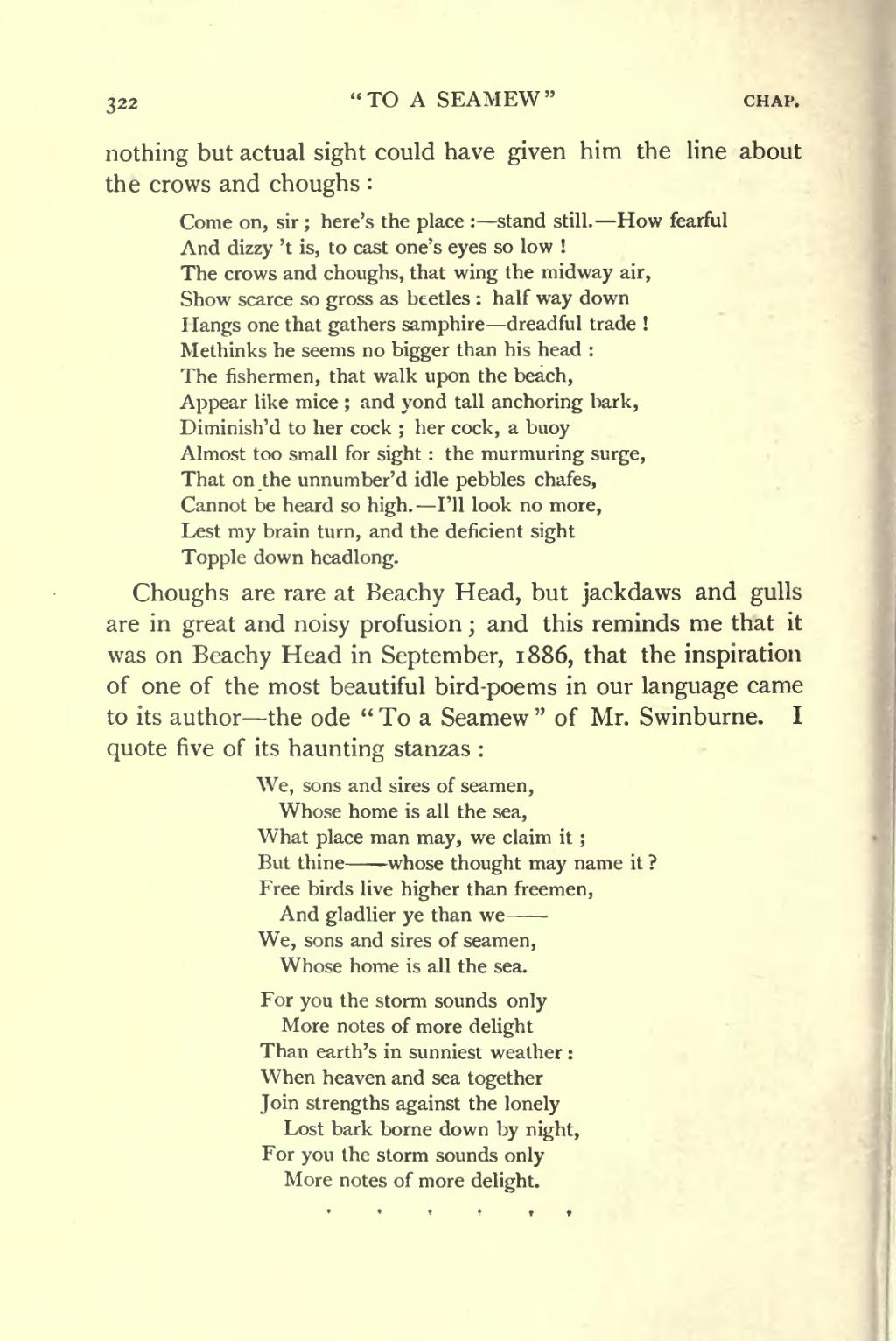nothing but actual sight could have given him the line about the crows and choughs:
Come on, sir; here's the place:—stand still.—How fearful
And dizzy 't is, to cast one's eyes so low!
The crows and choughs, that wing the midway air,
Show scarce so gross as beetles: half way down
Hangs one that gathers samphire—dreadful trade!
Methinks he seems no bigger than his head:
The fishermen, that walk upon the beach,
Appear like mice; and yond tall anchoring bark,
Diminish'd to her cock; her cock, a buoy
Almost too small for sight: the murmuring surge,
That on the unnumber'd idle pebbles chafes,
Cannot be heard so high.—I'll look no more,
Lest my brain turn, and the deficient sight
Topple down headlong.
Choughs are rare at Beachy Head, but jackdaws and gulls are in great and noisy profusion; and this reminds me that it was on Beachy Head in September, 1886, that the inspiration of one of the most beautiful bird-poems in our language came to its author—the ode "To a Seamew" of Mr. Swinburne. I quote five of its haunting stanzas:
We, sons and sires of seamen, ***** |

